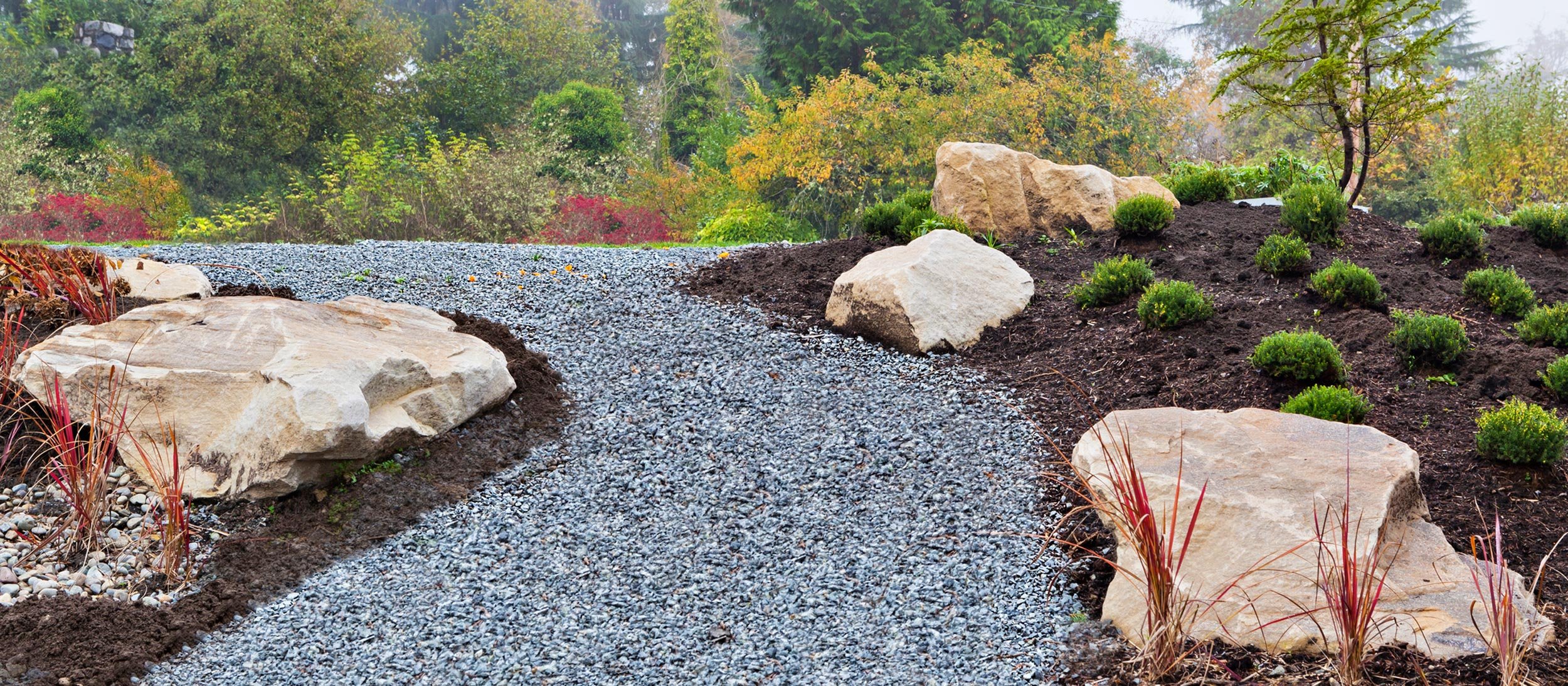Claim Center
We're in the business of helping people, providing prompt and personal claims service when you need us the most.
Call 877-242-2544 anytime, day or night, to report claims. You may also contact your independent agent to report a claim.
- Personal & Business ClaimsLearn More
- Life ClaimsLearn More
- Workers' Compensation ClaimsLearn More
Plan & Protect
Reduce risks and enjoy peace of mind with these tips and insights to protect what matters most.
Consider the Hidden Risks of Mulching

Rock, crushed stone and other hardscapes can limit mulch fire risk.
One of your annual gardening tasks might involve applying a new layer of mulch to help control weed growth, reduce soil erosion and add nutrients to the soil. While your fruits, vegetables or ornamentals might benefit, mulch is a combustible material, and care must be taken to avoid the possibility of it igniting. Once burning, mulch can be difficult to extinguish.
Types of Mulch
Mulch is any material, organic or inorganic, used to cover the soil surface for a variety of purposes.
Most organic mulches come from plant materials such as pine needles, wheat straw, pine bark nuggets, shredded cedar and redwood bark, or wood chips from recycled pallets. Ground and shredded rubber are also considered organic mulches.
Inorganic mulches, usually derived from non-plant materials, include rock, gravel or brick chips.
The Fire Danger
There are many factors that can increase the possibility of fire ignition such as, below-average rainfall, dry conditions, warm temperatures and high winds. In addition to these factors, mulch can ignite in a variety of ways:
- Improperly discarded smoking materials
- Spontaneous combustion
- Sparks from wildland or other fires
Avoiding Mulch Fires
You can reduce the risk of mulch fires by:
- Watering to keep the garden consistently moist
- Installing inorganic mulch that is less likely to ignite
- Limiting mulch depth to no more than three inches
- Adding a non-combustible barrier, such as a rock bed, between the mulch and any structures on your property. If your mulch does ignite, this will allow more time to extinguish the fire
- Keeping fire pits or grills a safe distance from mulch beds
- Discarding cigarettes in proper receptacles, not in mulch or potted plants
More Information
Preventing Mulch Fires, Office of the State Fire Marshal, Massachusetts
This loss control information is advisory only. The author assumes no responsibility for management or control of loss control activities. Not all exposures are identified in this article. Contact your local, independent insurance agent for coverage advice and policy service.